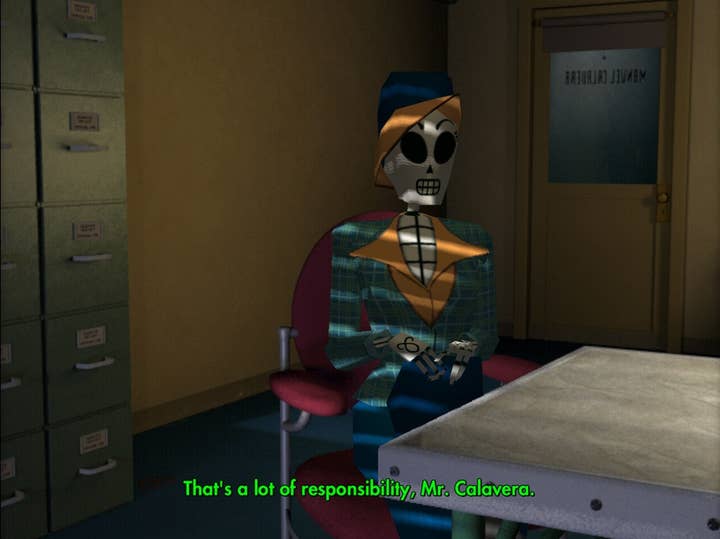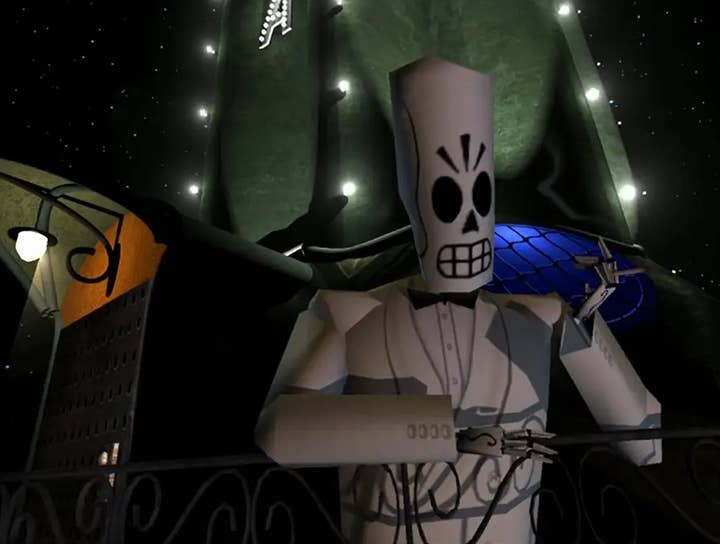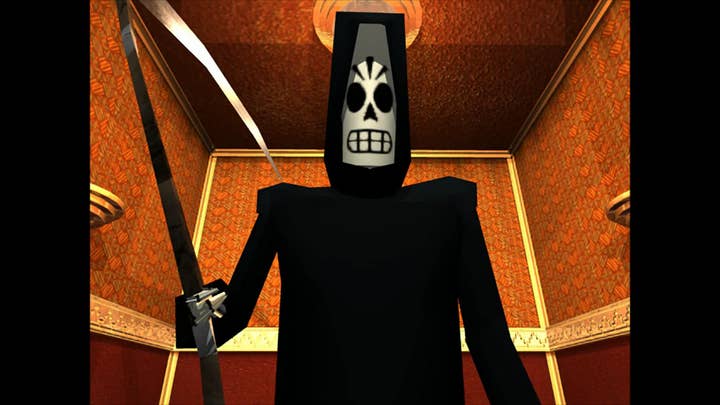Grim Fandango | Why I Love
Hilltop Studios co-founder Scott Christian revisits the classic LucasArts adventure, which he played when he was too young to understand it all but fell in love with nonetheless
Why I Love is a series of guest editorials on GamesIndustry.biz intended to showcase the ways in which game developers appreciate each other's work. This entry was contributed by Scott Christian, co-founder of Hilltop Studios, which launched the narrative adventure game Lil' Guardsman on PC, Switch, PlayStation 5, and Xbox Series X|S this week.
As a kid born in the mid-'80s, some of my earliest memories include NES (specifically standing right next to the already old CRT TV in our basement, pressing the muzzle of the Duck Hunt gun to the glass), and a little later a Game Boy (which made family road trips a little bit more bearable).
My voyages to Monkey Island, my failed spells cast in Simon the Sorcerer, and my heroic King's Quests were all family affairs
But when I really think back on my earliest core gaming memories, it was playing the classic early-'90s LucasArts and Sierra adventure games with my mom. The memories are hazy at this point, but I think I was probably the one 'driving,' with her there to help when I got stuck. Or to step in when the whole damn game flummoxed me. See: The Dig, which I loved, but which made no sense to me at the time.
A few years later, I didn't need my mom anymore and instead, my little brother took her place, watching over my shoulder as I played. My voyages to Monkey Island, my failed spells cast in Simon the Sorcerer, and my heroic King's Quests were all family affairs.
So: five years ago, the New York Times did an analysis of people's Spotify data and determined that "...for men, the most important period for forming musical taste is between the ages of 13 to 16. Men were, on average, aged 14 when their favorite song was released. For women, the most important period is between 11 and 14, with 13 being the most likely age for when their favorite song came out."
This more or less tracks for me with my favorite game of all time: Grim Fandango, which came out when I was 12-and-a-half (I think the 'and a half' was still important at that point, and it supports the science now!).
I had never played anything like it before. I was hooked by the end of the opening cutscene, and completely obsessed by the time I left the first main location in the game (El Marrow). I was a nerdy kid whose parents forgot about the inappropriate stuff in the books and movies they gave me to read and watch until it was too late, so here was a game that felt as deep, and cinematic, and interesting, and exciting, and as badass as the books and film I was discovering and falling in love with. There were many references that flew way over my head at the time, but it was the first game I remember thinking was just really cool.

So why did Grim Fandango bowl me over in a way that no other game had before (or few have since)?
I can remember parking the player character Manny in the middle of a screen and just listening
Out of college, I spent about 15 years working as a conductor and composer, so the first thing that probably got its hooks into me was Peter McConnel's truly iconic soundtrack. I can remember parking the player character Manny in the middle of a screen and just listening. The score brought to life the game's ambitious and unique world. It's Mexican Day of the Dead mariachi vibes meets moody film noir meets joyous big band meets classic Bugs Bunny. It's an all-time greatest game soundtrack that's tough to beat to this day IMO.
The music isn't all that telegraphs Hollywood scale: so do several other things about the game's construction. Sure, the 3D sprites are hard to look at today, but the art direction was impeccable and it was a world I wanted to lose myself in. As I said, I didn't understand most of the references until years later, but, even without the context, it felt like a living, breathing world that could extend outward in all directions (despite how small the sandbox actually was).
One of the golden rules of screenwriting is 'arrive late, and leave early', meaning drop the viewer into the story as late as possible, and get out as early as you can. Thinking about Grim Fandango now, I feel like it applies this adage as effectively as any adventure game ever has. The handful of exposition dumps that occur in-game are delivered in ways that make contextual sense to the story. A player can shake a few of the conversation trees to the point that they start to drop some backstory, but mostly the player puts the puzzle together through what the characters say to each other (or through the delicious subtext underneath what they're saying). You are spoon fed just enough about Manny's past to understand what's driving him forward, and his discoveries are your discoveries.
And just when you think that the picture is coming into focus, THE GAME JUMPS FORWARD A YEAR! And there's a whole life Manny's lived that you don't see (he's a self-made man and runs a casino now? He's cultivated friendships, lovers, and enemies - all in the course of a fade to black! Keep up!!!). And it's thrilling. You're the same Manny Calavara, with the same primary mission, but you've got a whole new, flavorful zone to uncover that's not explicitly explained to you. By the way, the game does that two more times in the story's four-chapter, four-year narrative, though none of the jumps are quite as impactful as the first one to the Casablanca-inspired Rubacava (see, I get the references NOW).

I mean, a lot of what I'm talking about rolls up to a pretty uncontroversial opinion: Tim Schafer is an absolute boss.
I finished the game, probably played it a second time within a few months, and then put it on the shelf. And then the adventure game genre of my youth died. But not really. All the things that made 'point 'n' clicks' great infiltrated every other genre. Games are art now, don't ya know?
Flash forward 20 years and my best friend and I set out to make a game together. A game that I'm supposed to connect to Grim Fandango in this article, which is a bit of a stretch. (Editor's note: We don't need Why I Love columnists to talk about their new games in these columns. If they feel the need to, that is between them and their PR agencies.)
Lil' Guardsman has more DNA in common with Grim Fandango's cousin, The Curse of Monkey Island. But I do hope we're making a game that stays with people after the credits have finished rolling. I hope we've made a game that 'arrives late, and leaves early' in terms of its storytelling.
Lil' Guardsman may look cute and cartoonish, but it's not a game for kids. Just like the games I played as a kid weren't necessarily for kids. But I can certainly picture a parent thinking that their weird, nerdy kid will like our weird, nerdy game… just like my mom did with games like Sam and Max and Day of the Tentacle, games that fostered a love of the genre that gave me my all-time favorite: Grim Fandango.
Developers interested in contributing their own Why I Love column are encouraged to reach out to us at news@gamesindustry.biz.
